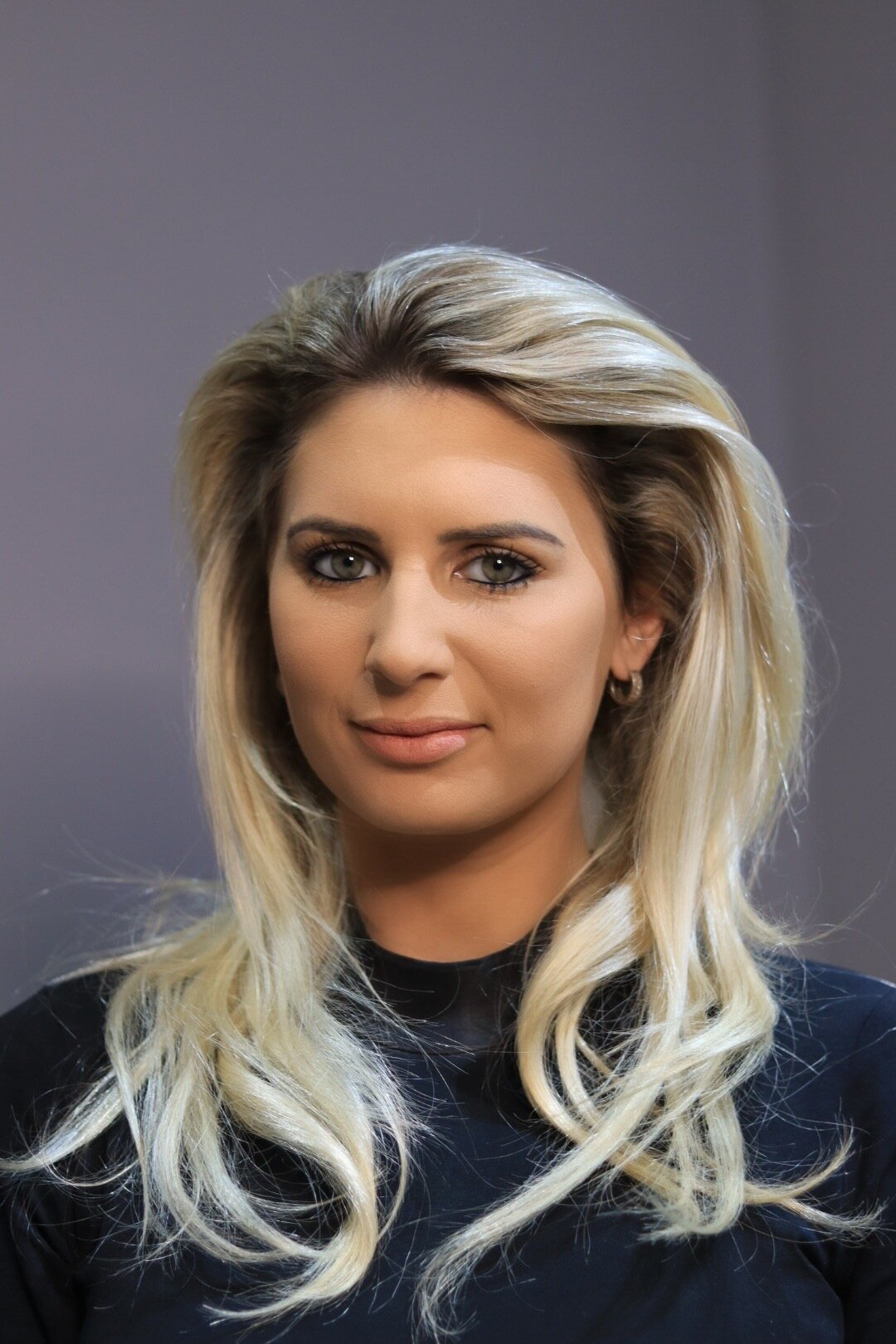My partner doesn't want a baby but I do: We share 5 reasons why they might not be ready and the expert-led replies for you to try
Wanting a baby when your partner doesn't is a far more common problem than you might think

Parenting advice, hot topics, best buys and family finance tips delivered straight to your inbox.
You are now subscribed
Your newsletter sign-up was successful
It's hard when one half of a couple is ready to have a baby but the other isn't - where do you go from there? Here we speak to the experts to help you navigate this tricky time.
Being in a relationship can bring lots of amazing things into your life and also lots of challenges, from wondering how to spice up your relationship to discovering the benefits of spooning (hint: they're many and varied)
The idea of your partner not wanting a baby, when you're ready can be tough to reconcile, and you're not alone in this. It's an issue that happens to millions of couples all around the world, undoubtedly since it can be hard to tell whether or not your partner wants to start a family unless you explicitly talk to them about it.
This is the first piece of advice that John Kenny from The Relationship Guy has, as he suggests, "It is of fundamental importance that this is discussed before a relationship gets to a place where it is in a committed space.
"Never hold out hope that someone will change their mind if their opinion differs and don't sacrifice what you want for the sake of someone else. Obviously, people change their minds about things over time, and what may not have been an issue previously can be at a later date. To address this if it happens, then I would always suggest that there is an honesty from one to another."
So what should you do if you're thinking, "I want a baby and my partner doesn't"? Here's what the experts have to say...
I want a baby and my partner doesn't - what should I do?
So while it might be too late to have the 'I want a baby, do you?' talk early in the relationship, it doesn't mean that it can't happen now. As John Kenny says, "Make time for a conversation when both know a conversation is going to happen and calmly put your thoughts and feelings across to the other person.
Parenting advice, hot topics, best buys and family finance tips delivered straight to your inbox.
"Be ready for an instant reaction if this is new news to them and give them time to consider their position. You are unlikely to get the answer you want in that moment."
He then suggests thinking about whether this has been an issue from the beginning of the relationship and if so, "why did someone commit to this in the first place? Both need to consider what holds most value to them, as the need/want for a child rarely diminishes. If it isn't to be for both of them, are they with the right person?"
"If it is something that is important to someone then it can't be an issue that you can ignore. It is important that once a relationship starts to develop into something longer term that the conversation about children is had at this time, so it can be resolved there and then."So how do you resolve it?
5 reasons your partner might not want a baby and how to respond
1. 'I'm just not ready.'
Solution: Mig Bennett, Relationship Counsellor says that it's important to ensure there's no tone of accusation but to "be curious about why they feel unready". He says, "Are they doubting the strength of the relationship, or fearing a repeat of their own childhood? Any number of concerns may come out." While it's one of the most common reasons for not wanting children, not many people delve into what not being "ready" actually means.
"The question I would recommend asking your partner is when they think is the right time to have a children?" Emma DaveyCounsellor and Trama Therapist tells us, "Sometimes people have a lot of expectations of when the right time is. What are they basing this on? Is it finances, accommodation, or lifestyle? Speaking with your partner, and finding out what the reasons are, will give you a better understanding of what they want out of their life.

"It could be they still have things they want to do and achieve before having a baby, or they could have worries about being a parent. Having a baby is a life-changing experience and many want to ensure they do it at a time that is right for them. Nobody knows what to expect when having a baby, but it does change everything, even if you’re determined it won’t. Some people may view the prospect of that change as scary and they may doubt their parental skills."
"Communication and understanding is key." Emma says, "Be as open and honest as possible with each other about the concerns. Listen to each other and try to reach an agreement. "
But ultimately both our experts agree that just because it's a 'no' at the moment, doesn't mean it's going to be a 'no' forever. By continuing to check in with someone about what they want, you can make sure that you're both on the same page.
2. 'I'm too young to settle down.'
Solution: "I think context matters here, especially if there is an age difference." Ruairi Stewart, The Happy Whole Coach, warns. "For some women, there can be more urgency in their timeline of when they want or expect to have children based on their age or work commitments."
But he says, "It’s really important to have these kinds of conversations, even if they’re uncomfortable so that both people can be clear about their feelings and intentions. It may be that the outcome of this conversation results in a deal-breaker situation, and the person who wants to have kids needs to reassess whether they can or should stay in the relationship if this is something they are set on.
For the person who feels they are too young to have kids – it is their right and freedom to assert that. A respectful relationship has to take into account where both people are in their timeline and what each person wants from the relationship in terms of family planning and when that might happen. I don’t think it is fair for pressure to be put on the younger person, and that may also be a deal breaker for them if they feel they are being pressured."
3. 'I've changed my mind.'
Solution: "People change their minds about a lot of things during their life and having a baby is no exception." Emma Davey tells GoodtoKnow, "It is important to respect the views of both you and your partner, neither is right or wrong. It is a personal decision. No one should be forced into such a life-changing thing against their will. It wouldn’t be fair to both your partner and the child, and there is a good chance they will resent you for it.
"The decision on how you move forward is yours. If your heart is dead set on having a family, and your partner isn’t, you may have to conclude that the relationship isn’t right for you. It can be a scary thought of what to do; do you pick your partner and accept that you won’t have the family you want? You have to decide what means more to you and your happiness. Try to think long term, accepting that you won’t have children may become tougher as you see your friends with their families and later their grandchildren.

"I would advise seeing a therapist so you can talk to a third party and really understand what you want and any concern you may be feeling. Can you see yourself without a baby or can you see yourself without your partner, it’s good to explore all your options?"
Talk to them "from a curious standpoint" adds Mig Bennett, as your partner is not the enemy. But if it's the case that one person has decided they do want a child, after previously not wanting one, then it's important to ask "why you want a child and why now? Is it because you want someone to love or be loved by? Is it to mend an unravelling relationship? Is it to feel secure? Is it because he may change and become more responsible or mature as a father? Having a child for reasons such as these is not a positive starting point."
"The bottom line may be that this isn’t the relationship for you." Mig adds, "In all three scenarios, if the issue is causing the couple to be stuck and embittered I suggest getting some counselling with a specialist couple counsellor to focus on this issue alone."
4. 'We can't afford to have a baby.'
Solution: This is a tough one and there's no one right answer for everyone as every individual has different personal values and monetary incomes, which are unquestionably one of the features that makes it harder or easier to have a baby. In fact, according to The Money Advice Service, looking after a child could cost as much as over £7000 within the first year - without childcare. For many people, this is a huge expense and on top of the potential for not being paid as much during maternity or paternity leave, it's a real consideration for many couples.
"But just because you’ll be spending a bit more, that doesn’t mean there aren’t ways to make your money go further." Counselling charity Relate tells those with similar issues. "With a little bit of planning ahead, you can avoid unnecessary spending."
So while it won't solve all your issues, it's something to consider if you're worried about not being able to afford a baby. Relate advise taking a look at The Money Advice Service's tips on saving during difficult times as well and say, "Although it’s natural to want to give your new arrival the very best of everything, most babies thrive whether they arrive on a budget or in the lap of luxury.
"So try to ignore all the ads and focus on the priorities."
While this advice might not solve your problems, talking and opening a positive conversation without blame is the best way, according to our experts, of determining what your next move will be if you want a baby and your partner doesn't. As after all, if they simply don't want a baby (and anyone is entitled to feel that way) then it's important to consider what you're going to do next.
5. 'I've got kids already, I don't want any more'
Solution: We know that not all families are the same but being part of a step-family, as a step-parent who naturally adore their step-children but wants a child of their own, can be really difficult. Ruairi says, "I would ask if this person wants to have their own family. If the answer is yes, then that could well be a deal breaker.
"A direct conversation needs to be had. State how you feel, but be prepared for the fact that the other person may not change their mind. This is a huge life decision for both of you, and if having your own family is important, that may mean that this might happen with the person you are currently with.
"Consider that your partner may not want to have children due to a negative experience with their ex, which is something that could be worked through and talked in order to help shift their perspective.

"The important thing is to be direct and have the conversation in a safe, calm, non-judgmental way, but be clear of your intentions for the long term and respect your partner’s wishes equally."
6. 'I'm too old to have children.'
Solution: "Check before you start that there’s no ‘tone’ of accusation or criticism in your voice then be curious, by asking probing questions about their feelings." Relationship counsellor Mig Bennett suggests. "Then really listen, calmly and without interrupting (especially with the word ‘but’) to the answers."
"Playback to your partner, in a neutral tone, what you’ve heard and let them know you hear. You may discover some things about their past or their fears for the future that you didn’t realise were at play. Then ask if they would listen to your feelings and put them calmly and concisely. Only say each feeling once! Ask if they have any questions. Then leave it with a comment such as 'Thanks for listening to me. I will go away and think about all you’ve said. Let’s leave it there.'"
"Sometimes we challenge too much, only considering our viewpoint and we push ourselves into polarised positions. If your partner can see you hear his or her fears that polarisation can shift."
While relationship expert Emma Davey agrees, she says that it's not an unusual conflict to arise - especially in relationships with larger age gaps. "Find out why your partner doesn’t want a baby."
She suggests, "Discuss the issue calmly so that you understand what their objections are. Their age may not be the only reason, they may also be worried about age-related fertility, or health complications. A baby at a later stage in life may mean expensive IVF, which can lead to disappointment and a strain on the relationship. Older people, who have already been parents, will also better understand the disruption that children bring. They may worry that you’re romanticising what it will be like. If you’ve already gone through the upheaval and expense of raising a family, and are now experiencing some ‘freedom’ again, it can seem a terrible burden to start the whole process again."
Our expert panel:

qualified integrative counsellor and a recovery coach for victims that have suffered from Narcissistic Abuse and Coercive Control. Emma believes that no single approach is better than another and the therapies I use depend on the person I work with and the type of issues being experienced.

Mig is a specialist and experienced relationship counsellor working with couples and individuals for over 25 years. I provide relationship counselling (including couples’ sexual issues) both privately and, until this year, with Relate, with whom Mig qualified with in 1996.
Talk about babies early
If you're researching this ahead of time then take note, unlike much-outdated dating advice would have us believe, talking about pregnancy and children early in the relationship is a good sign.
"Those who still consider the topic to be taboo are revealing an inner immaturity." Maria Sullivan, dating expert and vice president of Dating.com, says. "Some consider even the mention of the topic of having children alone to indicate some sort of premature, one-sided, and disproportionate commitment. The fact that this has become a normal way of thinking about it is all wrong. Dating is all about finding someone who wants what you want – you can only get to that point if you’re open, honest, and upfront."
But sometimes it's too little, too late as many people meet their partners long before the idea of having a family is even on the table, while other couples might have thought they were on the same page, only for one person to change their mind. Whatever the circumstances, it's completely reasonable for anyone to have second thoughts or reservations about having children as the idea of starting a family begins to turn into a possible reality.
Wonder why you've gone off sex and looking to add a bit more to your sex life, try our piece on Tantric sex or what is spooning and how it can increase intimacy levels.
Stephanie has been a journalist since 2008, she is a true dynamo in the world of women's lifestyle and family content. From child development and psychology to delicious recipes, interior inspiration, and fun-packed kids' activities, she covers it all with flair. Whether it's the emotional journey of matrescence, the mental juggling act of being the default parent, or breaking the cycle of parenting patterns, Stephanie knows it inside out backed by her studies in child psychology. Stephanie lives in Kent with her husband and son, Ted. Just keeping on top of school emails/fundraisers/non-uniform days/packed lunches is her second full-time job.